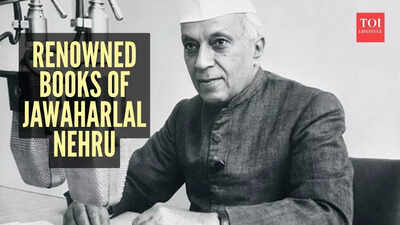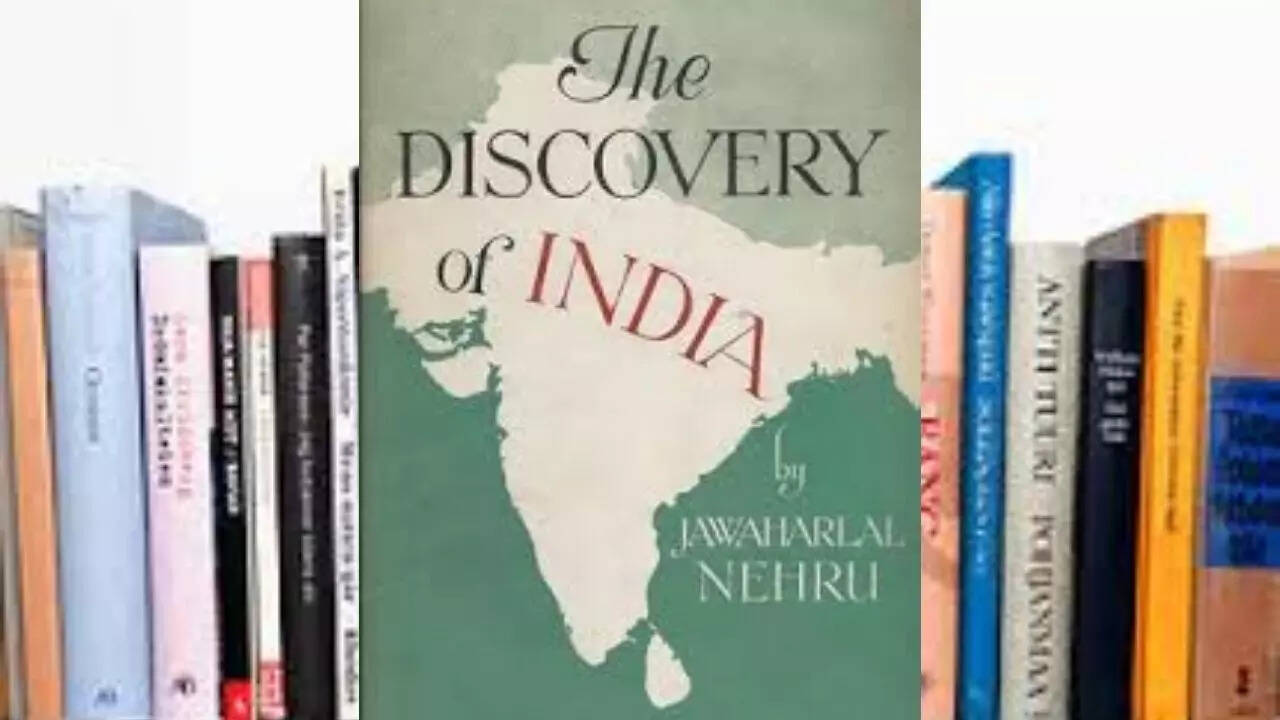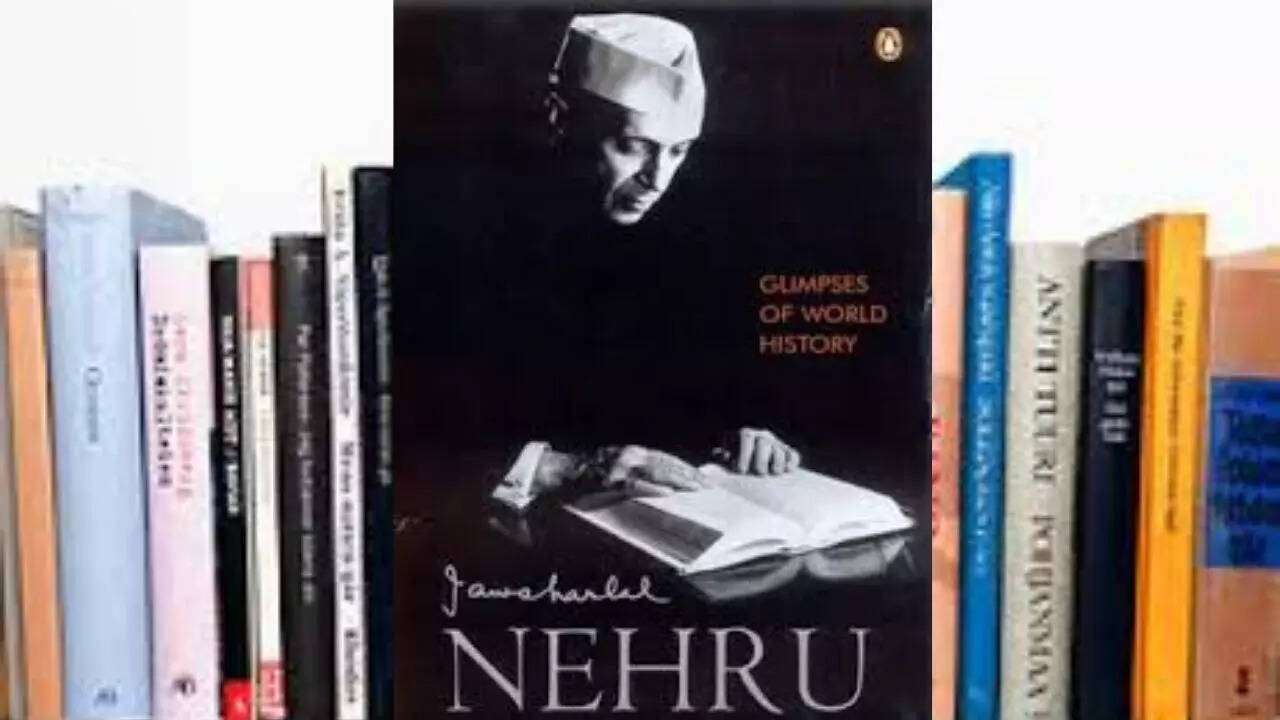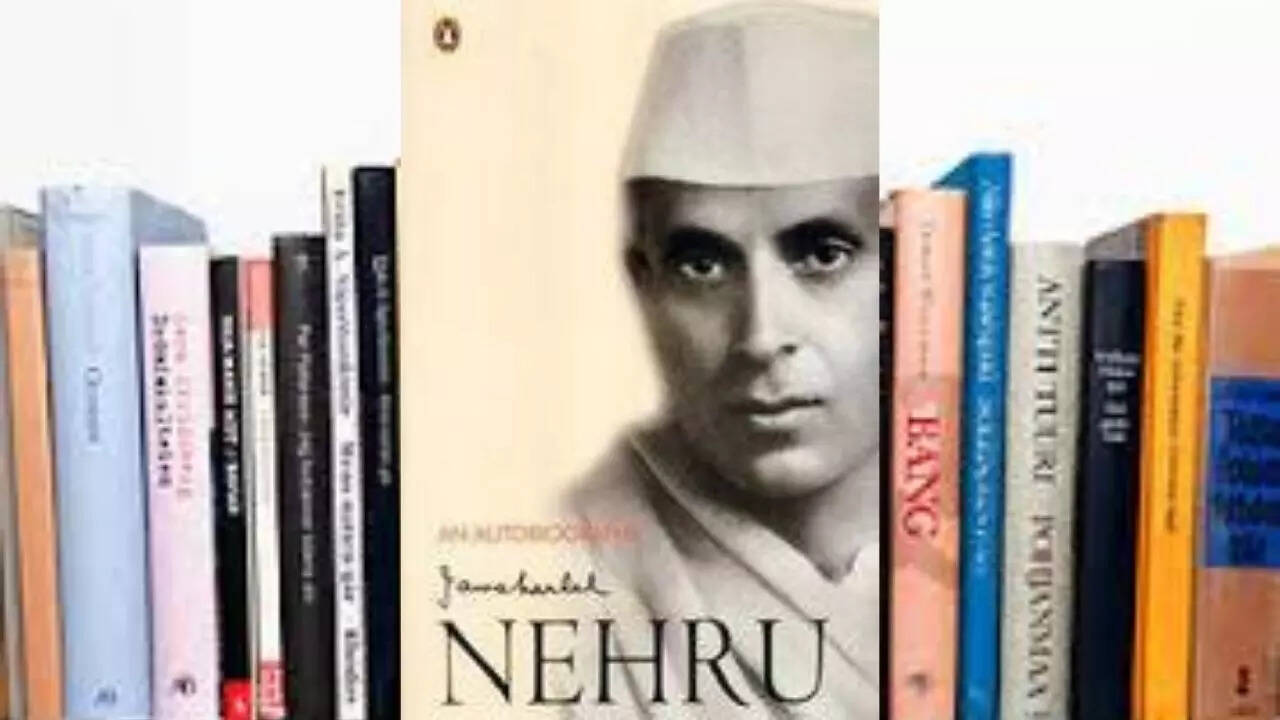ARTICLE AD BOX

Jawaharlal Nehru, India’s first Prime Minister, was not only a visionary statesman but also a profound thinker and writer. His books reflect his intellectual depth, political wisdom, and deep love for India’s cultural and spiritual heritage.
Through his writings, Nehru sought to connect India’s glorious past with its modern aspirations, inspiring generations to think critically and act with purpose.Nehru’s literary contributions go beyond political narratives; they embody his humanist philosophy and global outlook. Whether he wrote from prison or in moments of solitude, his words carried a vision of a just and enlightened world. His ability to blend historical insight with moral reflection made his books enduring treasures of thought.
Through his writings, Nehru continues to remind readers that knowledge, curiosity, and empathy are the true pillars of progress.
Here are three of his most famous works that continue to hold immense literary and historical significance.
The Discovery of India

Credit: Wikipedia
The Discovery of India is often regarded as Jawaharlal Nehru’s greatest literary and intellectual contribution. Written during his imprisonment at the Ahmednagar Fort between 1942 and 1945, the book is both a reflection on India’s past and a vision for its future.
Nehru wrote this monumental work to explore the essence of India - its philosophy, culture, spiritual heritage, and civilisational journey from ancient times to the modern era.The book begins by examining the origins of Indian civilisation, tracing influences from the Vedas, Upanishads, Buddhism, and other traditions that shaped the Indian mind. Nehru’s writing combines history, philosophy, and personal reflection, offering not just a factual account but also a deeply emotional narrative of India’s spirit.
He explores how India absorbed various cultures -- Persian, Greek, Islamic, and British -- yet maintained its unique identity through the ages.Nehru also uses the book to question colonial narratives that portrayed India as static and backward. Instead, he presents India as a dynamic, evolving civilisation that contributed immensely to world knowledge. His admiration for figures like Buddha, Ashoka, and Akbar highlights his belief in India’s long-standing traditions of tolerance and intellectual openness.Beyond history, The Discovery of India is also a political statement. It envisions a free India; democratic, inclusive, and rooted in its civilizational wisdom. Nehru’s eloquent prose transforms historical study into a poetic expression of national pride. Ultimately, The Discovery of India serves as both a meditation and a manifesto; an exploration of India’s soul and a call for rediscovery in the light of freedom.
It remains a timeless guide for anyone seeking to understand India’s unity in diversity, its cultural resilience, and its quest for progress rooted in ancient wisdom.
Glimpses of World History

Credit: Wikipedia
Glimpses of World History is one of Jawaharlal Nehru’s most remarkable intellectual works, written between 1930 and 1933 while he was imprisoned by the British. The book is a compilation of 196 letters written to his young daughter, Indira Gandhi, to educate her about world history, politics, and human civilization.
What makes this work extraordinary is that Nehru wrote it entirely from memory, without access to reference books, relying only on his deep reading and exceptional recall.The book begins with the dawn of civilisation, ancient Egypt, Mesopotamia, Greece, and Rome, and traces the evolution of humanity through the Middle Ages, the Renaissance, revolutions, and the rise of modern nations. Through these letters, Nehru weaves a grand narrative of human progress, emphasizing how societies have evolved through conflict, cooperation, and curiosity.Nehru’s purpose, however, was not merely to recount historical events but to draw moral and philosophical lessons. He highlights the interconnectedness of world cultures and the shared destiny of humankind. He rejects Eurocentric history, emphasizing Asian contributions and India’s place within the larger global story. The tone throughout is affectionate, engaging, and thoughtful - a father guiding his daughter toward a broader understanding of humanity’s struggles and achievements.In essence, Glimpses of World History reflects Nehru’s belief in internationalism and his conviction that history is the story of human growth rather than a record of wars. It reveals his encyclopedic mind, his rational outlook, and his deep respect for freedom and human dignity. The book remains a treasure trove of historical wisdom and philosophical insight, a conversation across time between generations, reminding readers that learning and curiosity are the keys to understanding both the past and the present.
An Autobiography (Toward freedom)

Credit: Wikipedia
Published in 1936, An Autobiography, also known as Toward Freedom, is Jawaharlal Nehru’s deeply personal account of his life, thoughts, and political awakening. Written during his imprisonment in Almora Jail in 1934-35, the book traces his journey from a privileged upbringing to becoming one of the leading figures of India’s struggle for independence.Nehru begins by describing his early life in Allahabad, his education at Harrow and Cambridge, and his years in England, where he was influenced by Western liberal and socialist ideas. He then returns to India, confronting the harsh realities of British colonial rule and the deep inequalities in Indian society. These experiences transformed him from a man of privilege into a passionate nationalist and disciple of Mahatma Gandhi.Nehru is also able to take an honest look back at his doubts, failures, and internal struggles throughout the autobiography. He is writing not as an abstract leader but as a man; critical, inner and idealistic. His philosophy which was a mix of rationalism, humanism and belief in collective progress can be seen in his writing. His politics, his participation in the Non-Cooperation Movement, his series of incarcerations, and his increased realisation of socialism and democracy as the future of India are also recorded in the story.An Autobiography is truly remarkable because it is emotionally honest. Nehru not only speaks of political happenings but also talks about his feelings - that of being lonely, imprisoned and the burden of leadership. Nevertheless, all this is interspersed with a sanguine and intellectual tone. Essentially, An Autobiography is a confession as well as a political document. It depicts the creation of a leader who integrated the intellect and empathy, science and spirituality and also, nationalism and humanism.
It is a classic commentary on freedom, self-discovery, and moral obligations of leadership even nowadays.

 1 hour ago
3
1 hour ago
3








 English (US) ·
English (US) ·